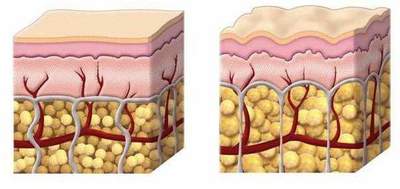The difference in terms of: the fact, hypothesis, theory and law
You may have heard someone disparages about evolution - "it's just a theory." On the other hand, gravity must be 100% real - after all, it is the "law". But the overall impression is not entirely correct. The word "fact", "hypothesis", "theory" and "law" have very specific meanings in the world of science, and they are not entirely consistent with those we use in everyday language.

Fact
"If you drop the pencil, it will fall to the ground."
This is quite a simple fact, but it is not so simple. In science fact - an observation that has been confirmed so many times that scientists can, in every sense, to accept him as "truthful". But nothing is from a scientific point of view, absolutely "true." You can say that "all swans are white" - it is a fact, but there is always a chance that you will see a black swan, and the fact cease to be true.
Similarly, you could say that in fact, every time you drop a pencil, he falls to the floor, but the science leaves room for an infinitesimal probability that this may not happen (for example, in conditions of weightlessness).
The hypothesis
"The pencil falls, because the force of gravity pulls it down."
Hypothesis - is a preliminary explanation of the observations that can be checked. This is only a starting point for further investigation. Any observation is usually accompanied by a plurality of hypotheses. If you notice that the white swan, your hypothesis might be that it is colored, or feathers faded in the sun, or the feathers just not enough pigment. Then you can explore all of these hypotheses and find the one that best supported by the evidence, if any. Throughout history there have been many hypotheses about why objects fall when you drop them. Aristotle believed that this is because material objects tend to fall toward the center of the universe, and the center of the universe the ancient Greeks believed the Earth. Newton argued that all land-related items should be attracted to the Earth, but also all the world should be attracted by other planets, and so on for each object in the universe. His hypothesis was that all this is due to the force of gravity, which he called gravity.
Act
"Every particle in the universe attracts every other particle with a force directly proportional to the product of their masses and inversely proportional to the square of the distance between them."
In science, the law - is a detailed description of the phenomena of the natural world, usually involving mathematics. Newton's law of gravitation, above, describes with impressive accuracy, how matter behaves. This makes it easy to predict how to behave in the Moon, if it is very large and close to their planet, rather than what it is now - very small and far away. The law describes it all, but does not explain why.
The theory of
"Mass and energy cause a curvature of space-time, the force of gravity arises from the curvature of space-time."
The theory - it is an explanation of some phenomena of the natural world that are supported by the facts, test hypotheses and laws. The above quotation - a simplified version of Einstein's general theory of relativity. Newton said that the force of attraction between two objects depends on their masses and the distance between them; Einstein said that the attraction is because the mass of each object literally distorts the fabric of the universe, and the greater the mass, the greater the distortion. The theory - it's the granddaddy of all scientific statements, so there is no point in saying that evolution - is "just a theory".
But, as has been said, science will never say anything with 100 percent certainty. Einstein's theory does not work when you apply it to quantum mechanics, which deals with the behavior of tiny subatomic particles. As a result, many scientists have put forward a new hypothesis about gravity. But this does not mean that Einstein was wrong. General relativity explains the vast majority of our observations, and each time, when scientists tried to prove that it is wrong, they have failed. This is the power of scientific theory: it is built on a foundation strong enough so that even if you find it a few cracks, you can be sure that the whole structure of the stand.













































